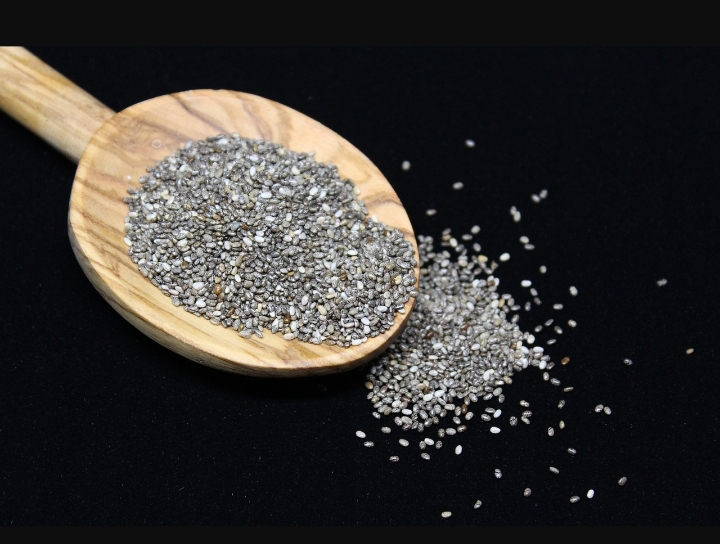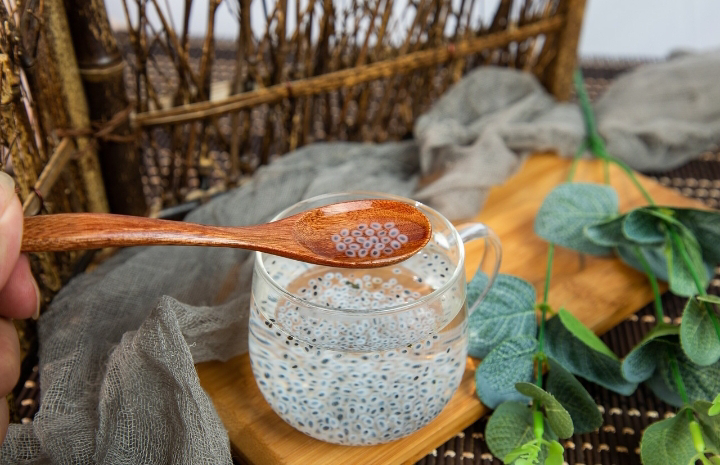The Power-Packed Superfoods
Have you ever thought that some tiny seeds can provide a storehouse of nutrients to your body? They can be so essential for maintaining good health that they help enhance the function of your heart and brain, provide immunity to your body, and at the same time help with digestion. Seeds may be tiny, but you can not underestimate their power, as these little nutritional powerhouses have health benefits. Seeds are the healthiest things in a tiny package. You can sprinkle them on your oatmeal or cereal, salad, or blend them into fruit smoothies, or munch on them as a snack. Seeds like pumpkin, melon, sunflower, sesame, flaxseed, and chia deserve a place in your daily diet. Let’s explore why!
1. Pumpkin Seeds (pepitas)
Pumpkin seeds are flat, oval-shaped green seeds which are not only delicious but also a great source of magnesium, zinc, and healthy fats. Just a small handful can support heart health due to ample amounts of omega-3 and omega-6 fatty acids, improve Immune function as they have high zinc content, and better sleep as they contain tryptophan, a precursor to melatonin.
Pumpkin seeds also fulfil 40 percent of your daily magnesium need, as magnesium is essential for heart health, muscle and nerve function, bone strength, and regulating blood pressure. Besides this, pumpkin seeds are also rich in antioxidants that help reduce inflammation.
2. Melon Seeds (Cantaloupe/Watermelon Seeds)
Melon seeds are a seriously underrated super-snack but are full of surprising health benefits. Often overlooked, melon seeds, especially when roasted, offer a surprising amount of protein, magnesium, and B vitamins. They promote skin and hair health, with copper and magnesium playing a role in collagen production. Due to their high B-vitamin content, they are perfect energy boosters. When consumed with the shell, they support digestion as a source of dietary fibre.
Melon seeds are popular in some cultures as a crunchy snack and can also be ground into flour. They are high in plant-based protein, as just a handful of roasted melon seeds can give you up to 5–7 grams of protein. They can be a great option for vegans and vegetarians looking to add more protein to their diet.
3. Sunflower Seeds
Sunflower seeds are a perfect combination of crunch, flavour, and nutrition. They're great for heart, brain, skin, and immune health and super versatile. Sunflower seeds come from the centre of the sunflower head. After removing the shell, the edible part, called the kernel, is full of goodness. It is rich in healthy fats, vitamins, and minerals and is one of the best plant-based sources of vitamin E.
Sunflower seeds are not just for birds; they’re a rich source of vitamin E, selenium, and healthy fats. They support cardiovascular health by reducing inflammation and improving cholesterol levels. Sunflower seeds also protect cells from damage, thanks to their high antioxidant content, and enhance brain function with nutrients like choline and magnesium.
4. Chia Seeds
Chia seeds may be small, tiny black or white seeds, but they’re one of the most nutrient-dense foods you can eat. Just two tablespoons contain 5 grams of omega-3 fatty acids, 11 grams of fibre, 4 grams of protein, and high levels of calcium, magnesium, and phosphorus. They provide numerous health benefits, like digestion support, as they have high fibre, promoting gut health. Chia seeds stabilize blood sugar by helping manage cravings and energy levels.
Chia seeds contain all 9 essential amino acids, making them a complete protein, which is rare for a plant-based food. This property helps with muscle repair and growth, increased energy levels and managing appetite. They are perfect for weight management as they keep your tummy full for a longer duration. But eating them dry can lead to choking for some, so it is better to soak them in water or plant milk before consuming them. In fact Chia seeds are a true superfood—nutrient-rich, easy to use, and beneficial from your brain to your bones.
5. Flaxseeds
Flax seeds have been cultivated for thousands of years for their healing and health-promoting properties. Flaxseeds are another omega-3-rich seed and are especially high in lignans, a type of antioxidant with hormone-balancing effects.
It promotes heart health, reduces bad cholesterol (LDL), supports hormonal balance, especially in women due to phytoestrogens present in it, improves skin health with essential fatty acids that hydrate from within. Best practice is to always grind flaxseeds before eating to absorb their nutrients better.
6. Sesame Seeds
Though sesame seeds are an oilseed crop, they have immense health benefits. Tiny but mighty, sesame seeds are rich in calcium, iron, and B vitamins. They boost bone strength as they are rich in calcium, phosphorus, and magnesium and great for those on dairy-free diets. They reduce inflammation as they are rich in antioxidants and healthy fats. They support metabolism thanks to the copper and zinc found in them, protects against oxidative stress due to sesamin and sesamolin compounds.
Why Seeds Should Be a Staple in Your Diet
Seeds are nutrient-packed powerhouses that should have a staple spot in every healthy diet. These contain all the necessary vitamins, minerals, healthy fats, and very essential plant proteins in small quantities and provide a wide range of health benefits. Seeds such as chia, flax, pumpkin, sunflower, and sesame seeds contain omega-3 fatty acids, fiber, antioxidants, and lots or essential minerals and nutrients like magnesium, zinc, and iron.
These promote heart health, enhance immune health, facilitate digestion, and assist in blood sugar regulation. Seeds are also very versatile—easy to sprinkle on salads, blend into smoothies, stir into yoghurt, or bake into breads and snacks. Their very high satiety value makes them useful for diet and weight management, too. Whether you are on a plant-based diet or simply wish to eat more whole foods,
Seeds are an easy and cost-effective means of adding nutrition naturally to your daily meals. naturally. You can have a range of seeds as part of your meals each day. It can have a positive impact and long-term effect on your physical well-being as well as overall health.
Seeds are a simple, affordable, and powerful addition to your pantry. Go for them if you're plant-based or just looking to eat more whole foods












No comments:
Post a Comment